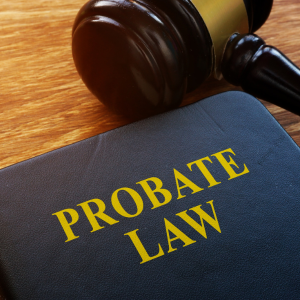
In Texas, selling an estate home, especially one that was left to you as an inheritance, can be very stressful. This is especially true when you have to deal with all the legal and financial issues. This complete guide is meant to help you understand every step of the process, from learning about Texas probate rules to getting the house ready to sell and finding qualified buyers. Whether this is your first time managing a family home or you’ve sold homes before, the tips and tricks below will help you make smart choices and get the most money for your estate. Let’s look at the most important things you need to do to successfully sell an estate home in the Lone Star State.
Key Highlights
- Preparing inherited homes involves collecting key documents, assessing the home’s condition, and implementing strong marketing strategies.
- Legal factors in Texas include understanding probate procedures and estate tax implications to ensure smooth transactions.
- Accurate property valuation depends on thorough market research and knowledge of local real estate trends.
- Expediting probate requires careful organization, professional guidance, and timely documentation.
- Strategic tax planning can significantly reduce estate tax obligations and enhance profitability.
Understanding the Process of Selling an Inherited Home in Texas
In Texas, it’s not always easy to sell a house that you received. Along with the emotional part of giving up family property, there are also the practical hurdles of going through the legal process, gathering paperwork, and getting ready. Whether you want to sell through a standard listing or privately, you need to know what to do every step of the way to make sure the deal goes smoothly and legally. Taking a well-thought-out, planned approach helps protect everyone’s interests and makes sure the sale goes smoothly. This includes making sure that ownership is clear and that all probate requirements are met.
Most of the time, the first step is to make sure that the person selling has the legal right to do so. Once those things are taken care of, the focus turns to getting the house ready to be listed. This includes checking its condition, making any necessary repairs, and making sure that marketing efforts show its best features. If you have the right plan, selling an inherited home can go from being a difficult job to an easy one that protects the home’s history and brings in a lot of money.
Steps to Prepare Your Inherited Home for Sale
Preparing an inherited home for sale in Texas starts with collecting and organizing all relevant paperwork. Review the will, deed, and property title to confirm ownership and identify any legal restrictions tied to the estate. If the estate has an appointed independent executor, that person typically oversees the necessary documentation, ensuring every legal requirement is met before listing the property.
Once you’re sure who owns the house, you should look at its physical state. Get a professional to look at it and find any maintenance or repair issues that might lower its worth. Most of the time, you can do small changes like painting or landscaping yourself. But if you need to fix something structural, like the roof, plumbing, or electricity, you may need to hire a professional contractor. Taking care of these problems early on not only raises the home’s value but also reassures potential sellers that it is in good shape.
Just as important is the staging. People are more interested in buying and selling a home that is clean, decluttered, and well-presented. Adding basic paint colors, better lighting, and modern furniture arrangements can help buyers see themselves living in the house. Draw attention to unique features, like a big garden, a new kitchen, or changes that make the house more energy efficient. These days, professional photos or video tours work really well to make a good first impression on potential buyers, even before they come to see the house in person.
Once the home is ready, marketing becomes the next focus. A solid marketing plan combines online and offline tactics, listing the home on major real estate platforms, running targeted social media campaigns, and using local advertisements. Be sure to emphasize location advantages like proximity to schools, parks, or employment centers. Pricing is another key factor: base it on a detailed market analysis to stay competitive without undercutting your property’s value.
In short, getting an inherited home ready to sell takes careful planning and attention to detail. Every step, from getting the right paperwork together to making the best show and marketing, helps the sale go more smoothly and lead to a better result. The work and time put in at the beginning can make a big difference in how quickly and successfully the sale goes through.
Effective marketing strategies for inherited homes include:
- Leveraging social media to reach larger audiences.
- Creating visually compelling online listings with professional photography.
- Highlighting unique home features in every listing description.
- Using targeted digital ads to attract qualified buyers.
- Promoting the home locally through community events or flyers.
- Hosting open houses to encourage direct engagement.
- Partnering with local businesses to increase exposure.
- Showcasing testimonials from satisfied clients to build credibility.
Together, these efforts increase visibility and attract serious buyers ready to move forward.
Legal Considerations for Inherited Property

Legal factors are the foundation of any successful estate home sale in Texas. When a homeowner passes away, their estate typically goes through probate, a legal process confirming the validity of the will, paying outstanding debts and taxes, and authorizing property transfers. Understanding Texas probate law is essential, as this process directly impacts your ability to sell the property.
Most of the time, an independent executor takes care of the estate and makes sure that all debts are paid so that the house can be officially sold. Executors have to keep correct records and often need permission from the court to take big steps in the process. If you have a lawyer who knows how Texas inheritance works, you can avoid delays and keep your heirs from fighting.
Title clarity is another critical issue. Before listing, ensure there are no liens or unresolved title disputes. Title companies in Texas can perform title searches and issue insurance to guarantee a clear title for the buyer. This step avoids potential setbacks at closing.
There is no state succession tax in Texas, but the federal estate tax may apply if the estate is worth more than a certain amount. A skilled tax advisor can help you figure out if you have to pay federal taxes and suggest ways to lower your tax bill. It’s also important to know the Texas Homestead laws, because they can change exemptions or the rights of surviving family members, based on how the property was used.
Because estate sales often involve more than one heir or complicated ownership deals, it is very helpful to have legal advice. Knowing the rules for probate, the tax effects, and the title requirements will help the sale go smoothly and legally, protecting both the estate and the recipients.
Handling Probate Property in Texas
It takes careful planning and following the court’s rules to sell a house that is still in probate. Sales of probate property are different because they have to follow certain formal steps that protect buyers, creditors, and heirs. Even though it might seem hard, knowing what to expect makes the process easier for managers and heirs.
What to Expect During Probate Court Proceedings
Probate in Texas begins when the executor files the will with the county court for authentication. Once the court validates the will, it formally appoints the executor to manage the estate’s assets. The executor is responsible for paying debts, maintaining records, and overseeing property sales as necessary. During this period, the court may require an official appraisal to establish the fair market value of the home. Keeping detailed documentation throughout the process ensures transparency and compliance with court requirements.
Occasionally, disputes arise, such as disagreements over valuations or the executor’s actions. In those instances, the court mediates and resolves conflicts to protect the estate’s integrity. Having a probate attorney can make a significant difference, providing clarity on procedures and helping executors fulfill their responsibilities without unnecessary delay. The smoother the communication between the executor, heirs, and court, the faster and more efficiently the probate progresses.
How to Expedite the Probate Process

Getting ready is the first step to speeding up a divorce. The most common reasons for delays can be avoided by making sure all paperwork is correct and turned in on time. Early on, executors should get all formal papers, such as titles, appraisals, and court forms. Hiring a good estate lawyer can make filing easier and make sure you follow the rules in Texas.
In some situations, executors may request independent administration, which allows for reduced court supervision and faster decision-making. This process, if approved, grants the executor more flexibility in handling estate matters and can significantly shorten the timeline.
To be successful, siblings must also be able to talk to each other clearly. To avoid misunderstandings and keep disagreements small, regular reports are important. The process can be sped up even more by having real estate agents who are skilled in probate sales handle the pricing, marketing, and negotiations. For a Texas estate property sale to go smoothly, things need to be organized, clear, and backed up by professionals.
Evaluating the Value of the Property
Determining the market value of an inherited home is both an art and a science. An accurate valuation helps establish a competitive price, attract buyers, and set realistic expectations for beneficiaries. In Texas, where market conditions vary widely by region, conducting a thorough evaluation is essential.
Conducting a Comprehensive Market Analysis
A market analysis looks at recent sales that are similar to the property, trends in local demand, and the property’s state and location. A good way to figure out what the home is worth on the market is to look at similar houses that have recently sold in the area. The goal is to find a price point that makes the business profitable while also making it competitive in the market.
Real estate professionals often consider neighborhood trends, nearby amenities, and school district rankings factors that directly influence buyer interest. They also analyze seasonality; for instance, spring and early summer typically bring more buyer activity in most Texas markets. By understanding these patterns, you can time your sale strategically.
One more thing that can help is technology. With online databases and tracking tools, sellers can see right away how well their listings are doing and how the market is changing. A thorough market study gives you the confidence to be sure of your pricing strategy, so you don’t undervalue or overvalue the estate property.
Factors That Affect Property Value in Texas
There are several things in Texas that affect the value of a home. Location is still the most important thing. Homes in or near big cities like Dallas, Austin, or Houston tend to sell for more money because their economies are better and their populations are growing. On the other hand, the value of homes in rural areas may change more based on employment and growth trends in the area.
The age and condition of a property are key factors in determining its value. Homes that are well-maintained or recently updated typically receive higher offers, while those needing extensive repairs may attract more interest from investors. It’s important to weigh renovation costs against the potential return on investment before deciding to make improvements. Updating kitchens and bathrooms often provides the best results. We buy houses in Texas in any condition, whether they’re newly remodeled or in need of repairs.
External factors such as economic growth, employment rates, and infrastructure developments influence regional market stability. Sellers who monitor these broader economic indicators gain a competitive advantage by timing their sales to coincide with favorable market conditions. Understanding these variables allows you to present the home strategically and maximize its value.
Understanding Estate Tax Implications

Not only does selling an estate home require legal factors, but it also requires a lot of financial planning. Because taxes can directly affect how much the receivers get, it is very important to know what the possible debts are and make plans for them.
Navigating the Financial Impact of Selling a Home
While Texas does not impose an inheritance tax, federal estate taxes may apply if the estate exceeds federal exemption limits. It’s essential to work with tax professionals who specialize in estate transactions to assess obligations and identify potential deductions. They can also help forecast how taxes and closing costs will affect the estate’s final proceeds.
Besides taxes, other costs to think about are property care costs, title transfer fees, and closing costs. Taking good care of these can protect the estate’s profits. Executors should work together with lawyers, accountants, and real estate managers to make sure that everything is clear and that the money is distributed correctly.
Lone Star Home Offers buys houses for cash in any situation call us today! Whether the property is part of an estate, in need of repairs, or facing financial complications, Lone Star Home Offers can provide a fast, hassle-free sale to help you close the estate efficiently and move forward with confidence.
Strategies to Minimize Estate Taxes
Thankfully, there are several effective ways to reduce estate taxes and protect your heirs’ inheritance. One of the best strategies is the “step-up in basis” rule, which resets the property’s value to its current market price at the time of the owner’s death. This adjustment can significantly reduce capital gains taxes when the house is eventually sold. If you’re looking to sell your house fast in Sugar Land, understanding this rule can help you maximize your returns while minimizing tax burdens.
Charitable donations can also lower taxable estate value, benefiting both the community and the estate. Larger estates may consider forming family limited partnerships to distribute ownership and minimize tax exposure over generations. Accurate appraisals and well-documented valuations are critical to supporting these strategies and preventing disputes with tax authorities.
Strategically timing the sale, for example, during a good market period or over several tax years, can also help handle liabilities. With the help of professional advice, every choice makes the net proceeds from the estate bigger.
FAQs
What are the initial steps in preparing an inherited home for sale in Texas?
To prove who owns the property, start by gathering important papers like the will, deed, and property title. Next, look at the house’s state, decide which repairs are most important, and think about staging or making small changes to make it look better.
How do probate laws impact selling an inherited property in Texas?
Probate laws govern how an estate’s assets are managed and transferred after death. The process ensures that debts and taxes are settled before property ownership is legally transferred to heirs or buyers. Understanding these rules prevents delays and disputes during the sale.
What legal considerations should be taken into account when selling an inherited home in Texas?
Important things to think about are making sure there is clear ownership, following the rules set by the probate court, and knowing how the federal estate tax will affect the estate. Talking to a lawyer who knows Texas estate law will make sure that the sale follows all the rules set by the law.
How can an executor expedite the probate process in Texas?
Executors can speed up probate by filing complete paperwork promptly, resolving title or documentation issues early, and applying for independent administration when possible. Consistent communication and professional guidance also help prevent unnecessary delays.
What strategies can minimize estate taxes in Texas during the sale of a probate property?
Using the step-up in basis rule, giving to charity, and setting up assets through family partnerships are all common tactics. Working with tax experts makes sure that these methods are used properly and efficiently.
Final Thoughts
Selling an inherited home in Texas involves balancing legal compliance, financial awareness, and practical real estate strategy. With careful preparation, the right professional guidance, and an understanding of probate and tax considerations, you can navigate the process confidently and achieve a successful, profitable sale that honors the estate’s legacy.
Helpful Texas Blog Articles
- Tips for Fixing Up a House to Sell in Texas
- Sale of a Rental Property in Texas
- Texas Closing Costs Without Realtor
- Understanding Capital Gains Tax After Selling a House in Texas
- Selling House by Owner Paperwork in Texas
- Selling An Estate Home in Texas
- How To Sell A Hoarder House in Texas
- Who Pay The HOA Fees at Closing in Texas?
- How Long After an Appraisal Can You Close in Texas
- Can the Seller Back Out of a Contract in Texas?
